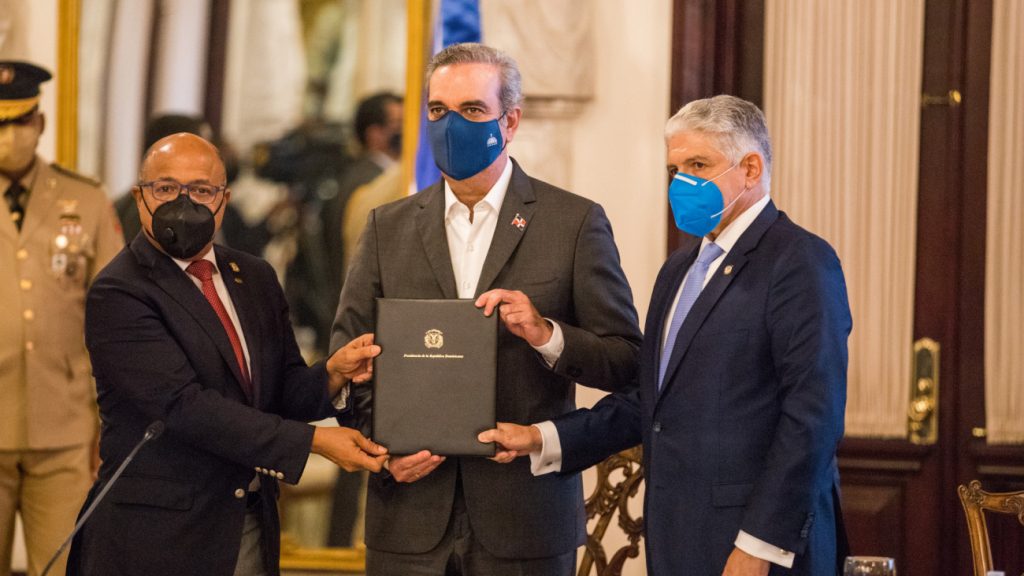
President Luis Abinader announced efforts are underway to develop the country’s National Competitiveness Plan. He expects it to serve as the framework for the reaching of “the Dominican dream.
“Today, I invite you to dream of a better country, but I also invite you to build it; setting a critical path with clear and ambitious goals, and with precise dates for their implementation,” said Abinader when making the announcement on 11 November 2020 at the Presidential Palace.
To dream, he warned, does not mean to wait for things to happen, but to have the courage to decide that this is the moment to change.
He said the National Council on Competitiveness (CNC) is creating the space for consultations to define the plan that he expects to present during his 27 February annual state of the nation address from Congress.
He said that the proposal should encompass significant action against excessive bureaucracy. He said his office has already delivered a draft of a plan for efficient government and zero red tape to Eduardo Estrella, president of the Senate, and Alfredo Pacheco, president of the Chamber of Deputies.
Abinader invited political parties, business people, workers, non-governmental organizations and churches to take an active part in defining the competitiveness plan. He extended the invitation to universities, media, multilateral, financial and cooperation institutions in the country.
“We are going to transform the Dominican Republic into a country we can all be proud of, and that can be an example to the world,” he said. Vice President Raquel Peña was also present.
During the ceremony, President Abinader signed Decree 640-20 that instructs the National Competitiveness Council to prepare and coordinate all actions for the National Competitiveness Strategy.
Abinader observed that to achieve this goal, regulatory obstacles need to be overcome. Independence of the justice system must prevail while impunity from corruption be combatted. Mainly, he said, inefficiencies need to be eliminated, both in the government and in the private sector.
He said that the country has a strong institutional weakness in its history that prevents it from overcoming the barriers to raising productivity and competitiveness that lead to development and welfare of all.
“Today, we begin this profound transformation and we dare to dream with hope and optimism, but with both feet on the ground,” said Abinader.
He said that the project will be aligned with the National Development Strategy and must be based on the country’s competitive advantages. He said the strategy must anticipate the challenges in the era of Covid-19 and the emergence of the fourth industrial revolution.
The director of the National Competitiveness Council, Peter Prazmowski highlighted that today a new strategy is being developed based on a rigorous prioritization methodology and with the consensus of Dominican society. Sigmund Freud Mena, director general of Public-Private Partnerships, presented several bills that are needed to implement the sought changes.
Read more in Spanish:
Presidency
11 November 2020

